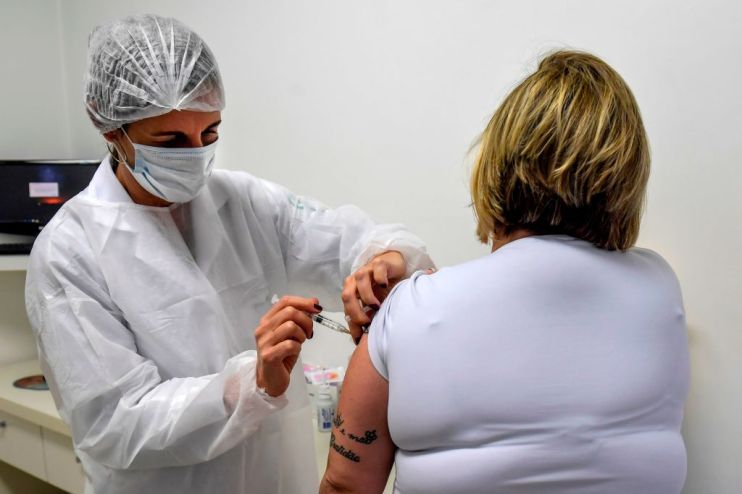Astrazeneca pauses Covid-19 vaccine trial after patient contracts mystery illness

Drugs giant Astrazeneca last night said that it had paused trials of its potential coronavirus vaccine after one of the study participants contracted an unknown illness.
The vaccine, which is being developed in conjunction with scientists at the University of Oxford, is widely considered one of the leading candidates in the hunt for a way to prevent the transmission of the new disease.
There had been hopes that the vaccine would be rolled out before the end of the year, but the suspension leaves that now unlikely.
Speaking to the BBC this morning, health secretary Matt Hancock said that the news was a “challenge”, but added that “it’s not actually the first time this has happened to the Oxford vaccine.”
Asked whether it would set back the vaccine development process, he said: “Not necessarily, it depends on what they find when they do the investigation.”
The government had signed a deal with Astrazeneca for an initial 100m doses of the potential treatment.
Before the Open newsletter: Start your day with the City View podcast and key market data
Astrazeneca said it took a voluntary decision to suspend the trials in order to review the data, but would try to make up the time lost through the process.
“This is a routine action which has to happen whenever there is a potentially unexplained illness in one of the trials,” the company said in an emailed statement.
“In large trials illnesses will happen by chance but must be independently reviewed to check this carefully”, it added.
The suspension was first reported by medical health website Stat News, which said that the person who contracted the illness was likely to recover.
The nature of the illness has not been revealed, though it said that the participant suffered a “suspected serious adverse reaction”.
Citing a person familiar with the situation, the New York Times reported that the person had contracted transverse mylitis, a rare inflammatory condition, but Astrazeneca declined to comment.
Charlie Weller, head of vaccines programme at health charity the Wellcome Trust, said: “Safety is the most important consideration when developing any vaccine, and it is right for the trial to be paused while an investigation takes place.
“This is often a normal part of the process in vaccine trials, which involve tens of thousands of people. It’s critical to quickly understand whether the illness has any relationship to the vaccine or the placebo and to share data openly, as Oxford University and Astra-Zeneca have done.”
The announcement sent Astrazeneca shares down 1.35 per cent by mid morning.